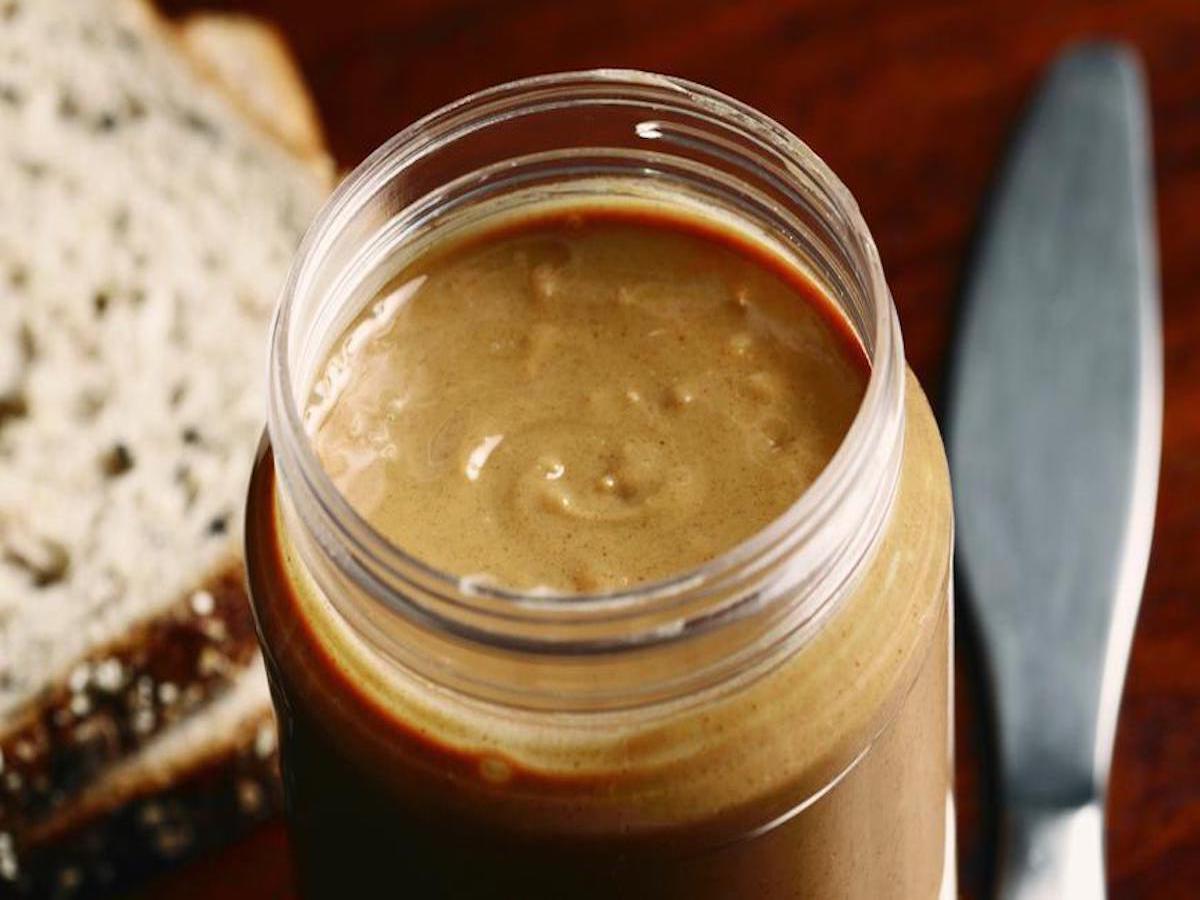15. Peanut butter
Refrigeration can help extend the shelf life of peanut butter, particularly for natural or homemade varieties that lack preservatives. The cool temperature of the fridge slows down the process of oil separation, where the natural oils in peanut butter rise to the top. Refrigeration helps maintain a more consistent texture throughout the jar.

However, many commercial peanut butters contain stabilizers and preservatives that allow them to be safely stored at room temperature. The high oil and low water content in peanut butter create an environment that is unfavorable for bacterial growth. Refrigerating peanut butter can cause it to become harder and less spreadable. The cold temperature solidifies the oils, making the peanut butter more difficult to work with. If you prefer a softer and creamier consistency, storing peanut butter at room temperature is more suitable.
Additionally, refrigeration can affect the flavor of peanut butter. Cold temperatures can dull the taste, making it less flavorful. If you enjoy the full taste and aroma of peanut butter, keeping it at room temperature will help preserve its rich and nutty profile.

